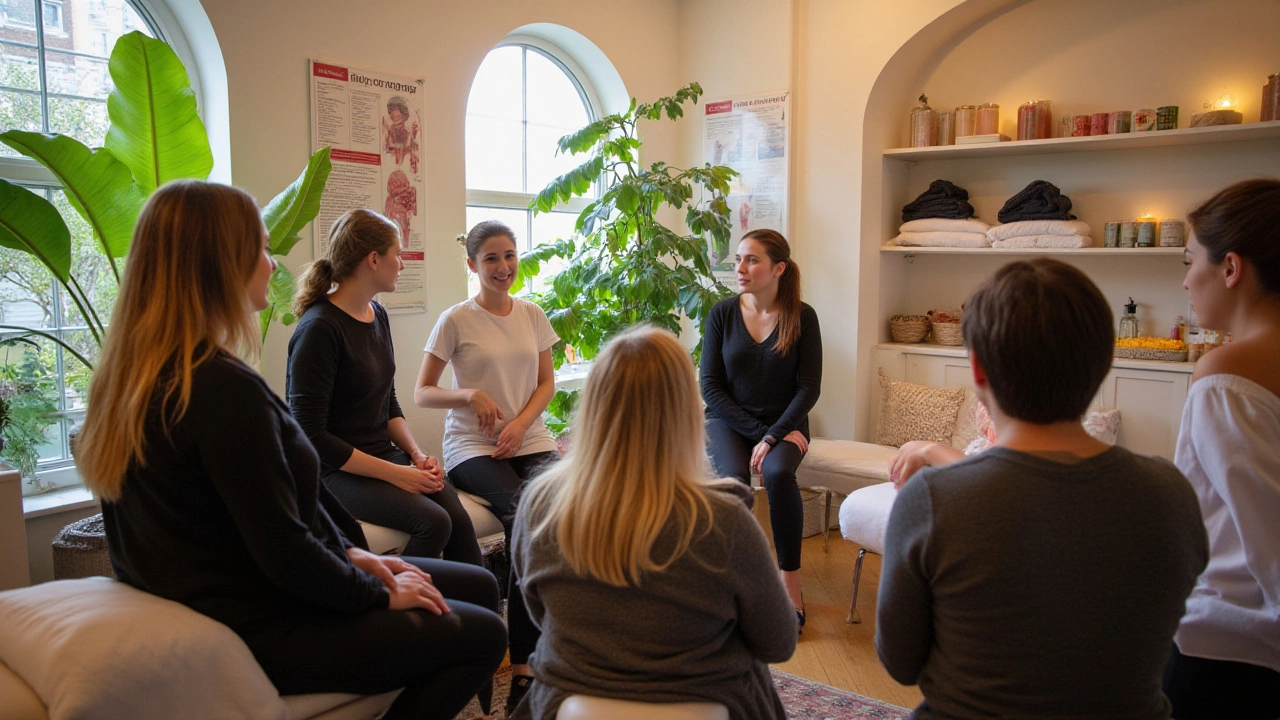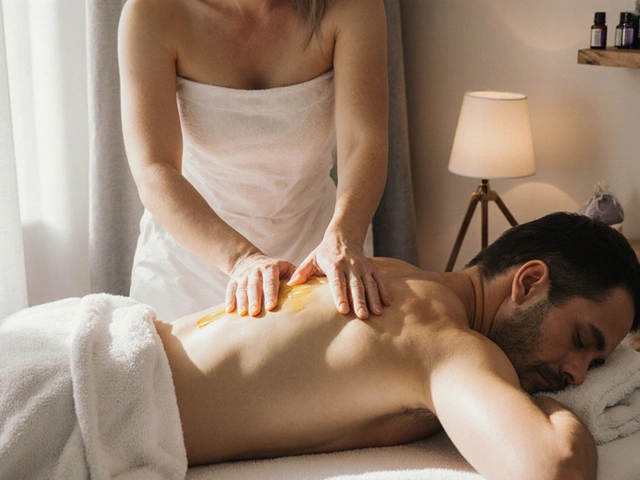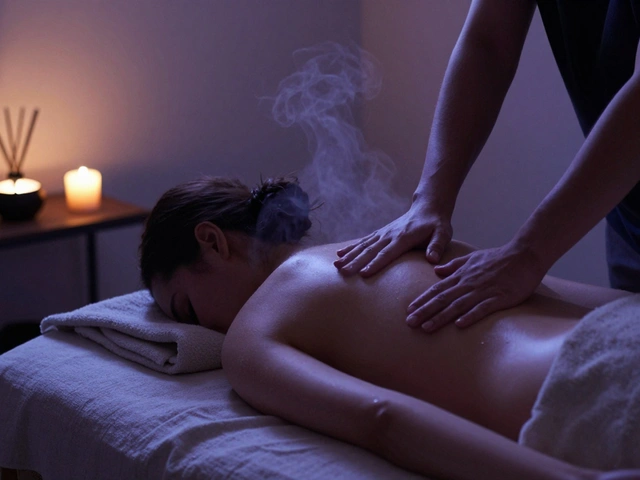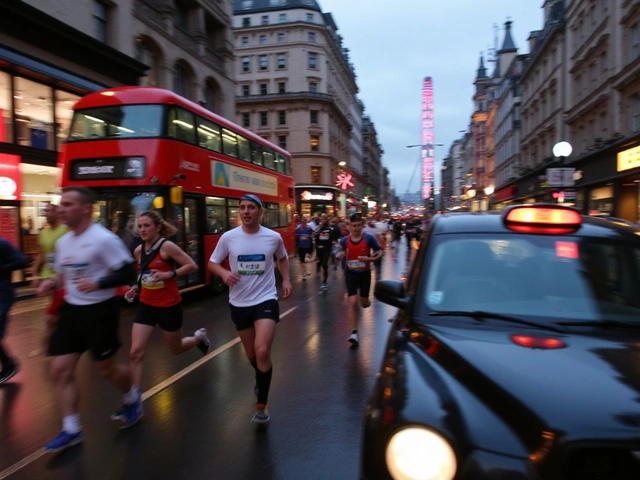You probably picture dim lights, soothing music, and maybe the faint scent of essential oils drifting in the air. But massage therapy isn’t just about pampering yourself or chasing a bit of relaxation after a rough week. In London, the science behind massage therapy is serious business—and it’s backed by hard data, not just fuzzy feelings.
Comprehensive Guide to Massage Therapy in London
If you’ve ever wondered what goes on beneath the soft hands of your therapist, you’re not alone. Modern massage is a blend of tradition and science, and London is one of the best places to experience that fusion. Here, you’ll find massage clinics plastered between artisan coffee shops in Shoreditch, big-name spas in Mayfair, and mobile therapists racing around every borough. All this diversity isn’t by accident—massage therapy has become a London staple, not just a luxury. Did you know that a 2023 survey found massage is among the top three wellness services booked in the capital, right alongside yoga and personal training? It’s a sign that Londoners are buying into the science of touch, not just a fleeting trend.
So, what makes massage therapy science and not snake oil? The answers go deeper than you’d expect—right down to your molecules. Massage affects everything from the nervous system to the immune system. Therapists aren’t merely rubbing tired muscles; they’re influencing your body’s chemistry. Regular sessions have even been shown to lower stress hormones like cortisol, boost happy chemicals like serotonin and dopamine, and improve everything from sleep to sports recovery. That’s why many Londoners swear by their monthly session like it’s as essential as a gym membership. And if you’re a bit sceptical, consider this: The NHS includes massage therapy in some pain management and cancer care programs, proof of how mainstream it’s become.
The next time you see a queue outside a London spa, remember—it’s not just about feeling good, it’s a wellness strategy backed by science. As neuroscientist Dr. Tiffany Field once put it,
“Touch is the first sense to develop and the last to fade; it’s our most basic form of communication.”Understand that, and every massage session starts to feel less like a tiny escape and more like an act of self-care built on real, measurable benefits.
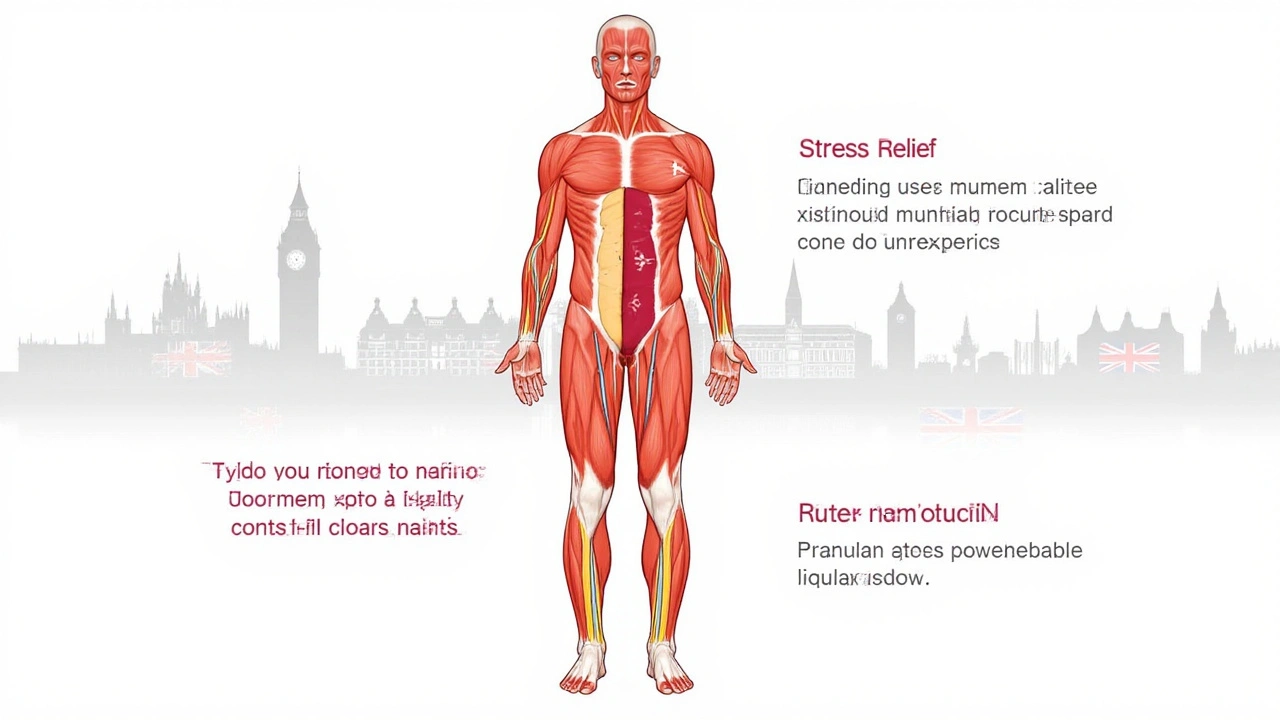
Benefits and Science of Massage Therapy: Why It Matters
Ready for the gritty facts? Here’s where science steps up. Massage therapy works by manipulating muscles and soft tissue, but the ripple effect is huge. One of the most eye-opening facts comes from a 2022 King’s College London review: regular massage can help reduce delayed-onset muscle soreness by as much as 30%. That’s brilliant news if you’re always rushing from the Tube to your next meeting—or trying to squeeze marathon training into a jammed week.
But let’s talk real benefits beyond just those annoying knots in your back. Studies show that massage can directly affect the body’s stress response. If you’re feeling anxious, massage turns down the fight-or-flight centre in your brain, letting you relax and even sleep better. In fact, participants in a University College London 2023 sleep study reported falling asleep up to 20 minutes faster after a proper therapeutic massage. As if that’s not enough, a handful of NHS trusts in the city now use massage to support chronic pain patients, with many saying their opioid use has dropped.
Mental health gets a boost, too. Emotional burnout is a big deal in a high-stress city like this. According to the British Psychological Society, hands-on therapy like massage can help lower symptoms of depression and anxiety, especially when paired with traditional treatments. People leave sessions feeling lighter, more focused, and sometimes genuinely surprised at how powerful a simple touch can be. By the way, there’s good reason sports teams across London book therapists on a regular basis—science has shown that massage can help reduce the risk of injury and speed up recovery by increasing blood flow to stressed tissues.
Don’t just think about relief and recovery. There are perks for your immune system too. A 2021 University of Westminster study found people who received weekly massages had higher levels of white blood cells, which help fight off colds and other nasties. Massage therapy is more than a spa day—a growing body of evidence links it to measurable health gains.
Ever noticed how your mood improves after just one session? A lot of that comes from how massage affects hormones. Your levels of cortisol, which spikes when you’re stressed, drop after as little as 30 minutes on the table. At the same time, serotonin—the ‘happy’ hormone—gets a gentle nudge up. Quite a bonus when you’re looking to shake off the city’s daily grind.
Many Londoners see massage as maintenance, like getting your car serviced. It can help with chronic tension from working at a desk, injuries from Saturday football, or just nagging aches from city living. A client once told me it’s cheaper than therapy and does wonders for his mood. That’s the science in action—simple, daily changes making a big impact on quality of life.
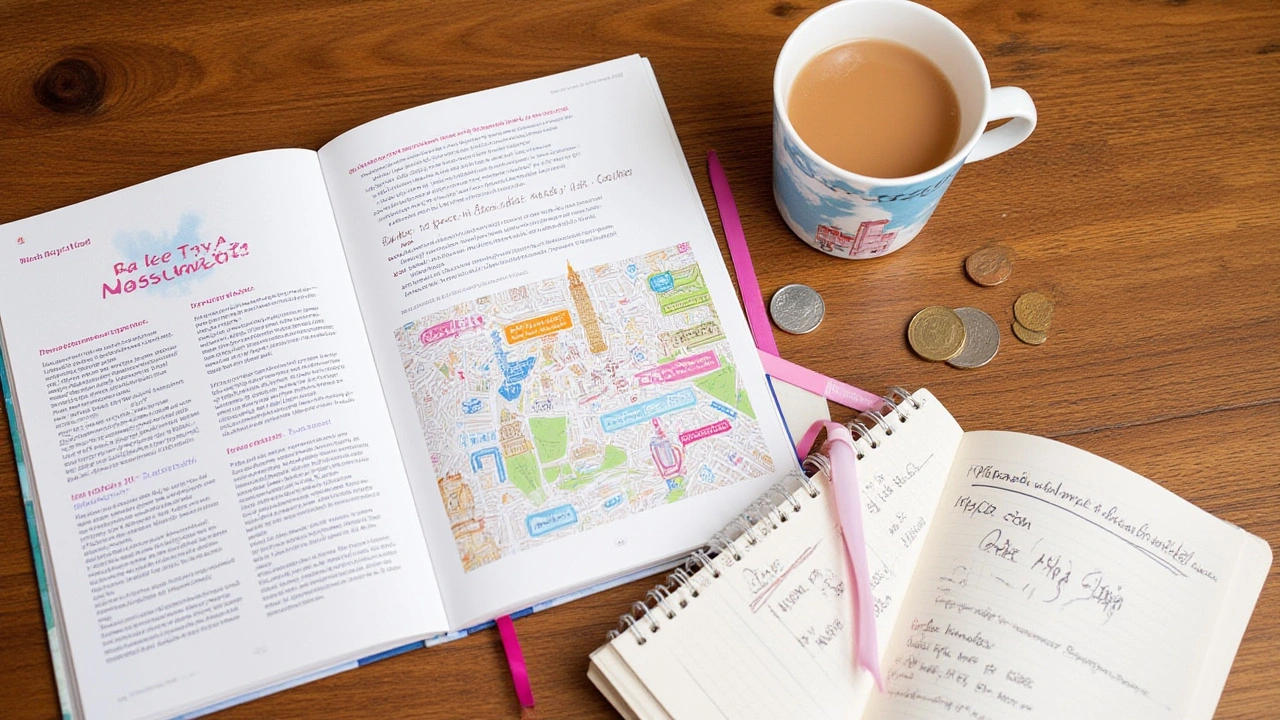
Types of Massage Therapy in London and Finding Services
London is a patchwork of cultures, and its massage therapy scene reflects that. You’ll find styles from around the world: Swedish massage for classic relaxation, deep tissue for those stubborn aches, aromatherapy if you like your senses tickled, Thai massage for stretching (some say it feels like assisted yoga), and even hot stone or lymphatic drainage for a more specialised touch. The city’s sports culture means dedicated sports massage therapists are always close by, working with both amateur and professional athletes. Over near Soho, you can stumble upon clinics that specialise in everything from Shiatsu to reflexology, and there’s never a shortage of practitioners offering something unique.
So, how do you actually find a good therapist? London has some gems, but you need to look beyond fancy websites. Start with reviews—but not the ones that sound suspiciously glowing. Look for honest descriptions, especially about the therapist’s skills and professionalism. The London Massage Guide and trusted wellness platforms are solid starting points. Recommendations from friends or fitness instructors go a long way, too.
For something bespoke, check out the independent therapists who work out of cosy studios or do home visits (also known as mobile or outcall). Many are qualified in more than one massage type, so you can try a blend of techniques if you want. You’ll pay a bit extra for convenience, but it’s ideal if you need privacy or find spas intimidating. If you’re in the city centre, major hotels and dedicated wellness centres often have top-tier practitioners on hand. Just expect a slightly higher price tag, and book in advance, especially on weekends—Londoners treat these appointments like gold dust, especially after a tough week at work.
Prices vary almost as much as the types of massage. A quick rundown for the city: Swedish or relaxation massages usually start around £50 for an hour in most mid-range spas, while a deep tissue or specialist treatment can go over £100, particularly at luxury spots or for home visits. Most will offer discounts for first-timers or regulars, so don’t be shy about asking. And if budget’s an issue, look out for training clinics—students (under supervision!) can provide excellent massages for half the price.
A quick tip: always confirm your therapist’s credentials. The best ones are typically registered with UK professional bodies like the Massage Training Institute (MTI) or Complementary and Natural Healthcare Council (CNHC). A certified therapist means you’re much more likely to get a safe, quality treatment. No surprises there.
So, what should you expect during your first session? Most therapists start with a brief chat to discuss your preferences, injuries, or health concerns. You’ll be given time to undress to your comfort level, then lie down under a towel or sheet. Don’t worry—good therapists are big on privacy. During the massage, you can chat, listen to music, or just zone out completely. Afterward, you might feel a little lightheaded (a sign it’s working!), so drink some water, take your time, and notice how your body feels over the next day or two.
Let’s not skip the safety basics. Always check that the place is clean and the therapist follows proper hygiene, especially post-pandemic. Communicate openly about your pain threshold—there’s no need to tough it out if it hurts. If you’ve got any medical conditions, share them upfront so the therapist can tailor the session to you. And don’t forget, massage is safe for most people, but if you’re pregnant or managing a health condition, make sure your practitioner knows or has specialist training.
Not sure how massage therapy stacks up against other wellness options in the city? Here’s a quick comparison table for clarity:
| Service | Main Benefit | Typical Cost | Best For |
|---|---|---|---|
| Massage Therapy | Muscle relief, relaxation, improved mood | £50–£120/hour | Stress, recovery, pain |
| Acupuncture | Pain relief, migraine support | £40–£90/hour | Chronic pain, headaches |
| Physiotherapy | Injury rehabilitation, mobility | £60–£140/hour | Physical recovery |
| Chiropractic | Joint and spine alignment | £50–£110/session | Back/neck pain |
Got questions? You’re not alone. People new to massage therapy always want to know:
- Q: How often should I get a massage?
A: Once a month works for most people, but if you’re dealing with injury or major stress, even once a week can help. - Q: Will I be sore after?
A: Sometimes, especially after deep tissue. It’s normal and usually fades in a day. - Q: Can I get a massage if I’m pregnant?
A: Yes, but go to someone trained in pregnancy massage. - Q: Do I tip my massage therapist in London?
A: It’s not required but always appreciated, especially in spas or hotels. - Q: What’s the difference between Swedish and deep tissue?
A: Swedish is gentle and relaxing, deep tissue targets stubborn knots and tension.
Ready to see what your body’s been missing? Don’t wait—London has more qualified hands than you might imagine, and a good massage could be your best new ritual. Book your session and give science a chance to work its magic on you.
